Thank you to everyone who joined us for the 7th Annual IC3 Blockchain Camp! This 7-day experience was hosted in-person on the Cornell Campus in Ithaca, NY. Our Camp technical committee of Surya Bakshi, Tyler Kell and Patrick McCorry prepared an immersive coding and learning experience with talks, panels, whiteboard sessions, and a week-long hackathon.

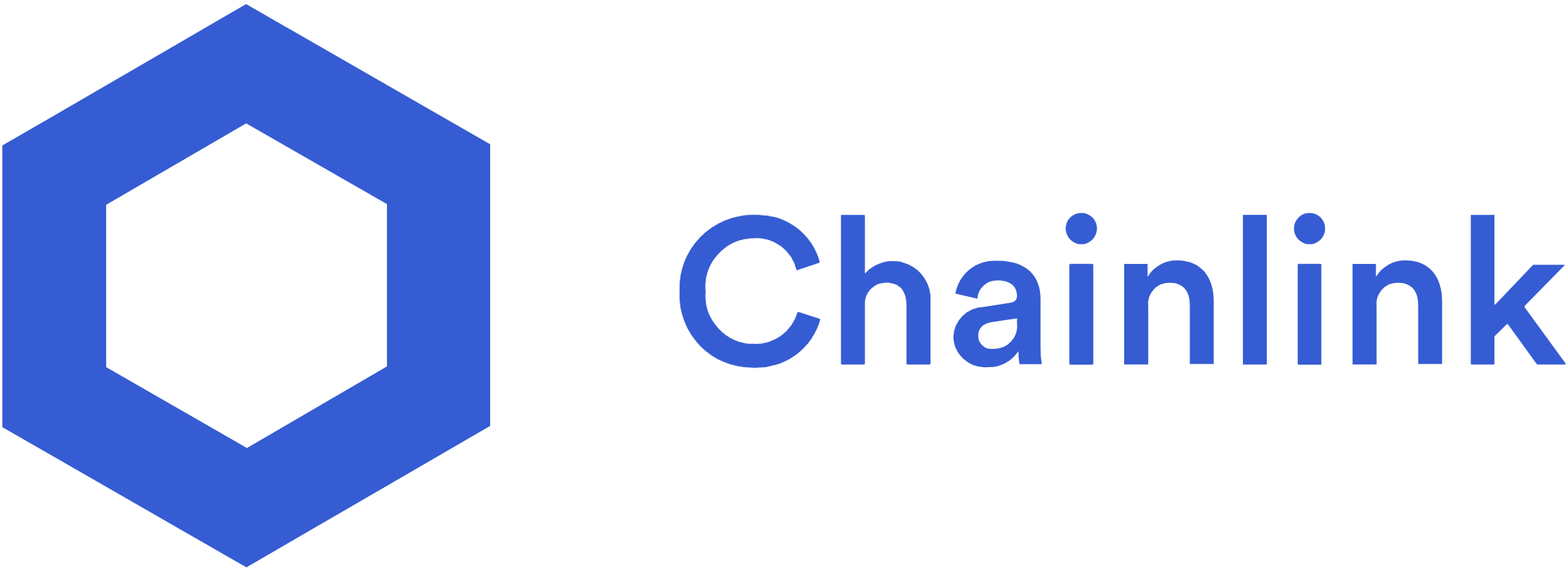

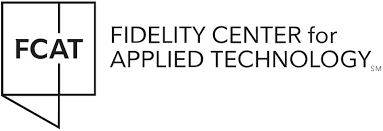






The camp covered a range of exciting blockchain topics including DeFi, cryptography, scaling, NFTs, and more!
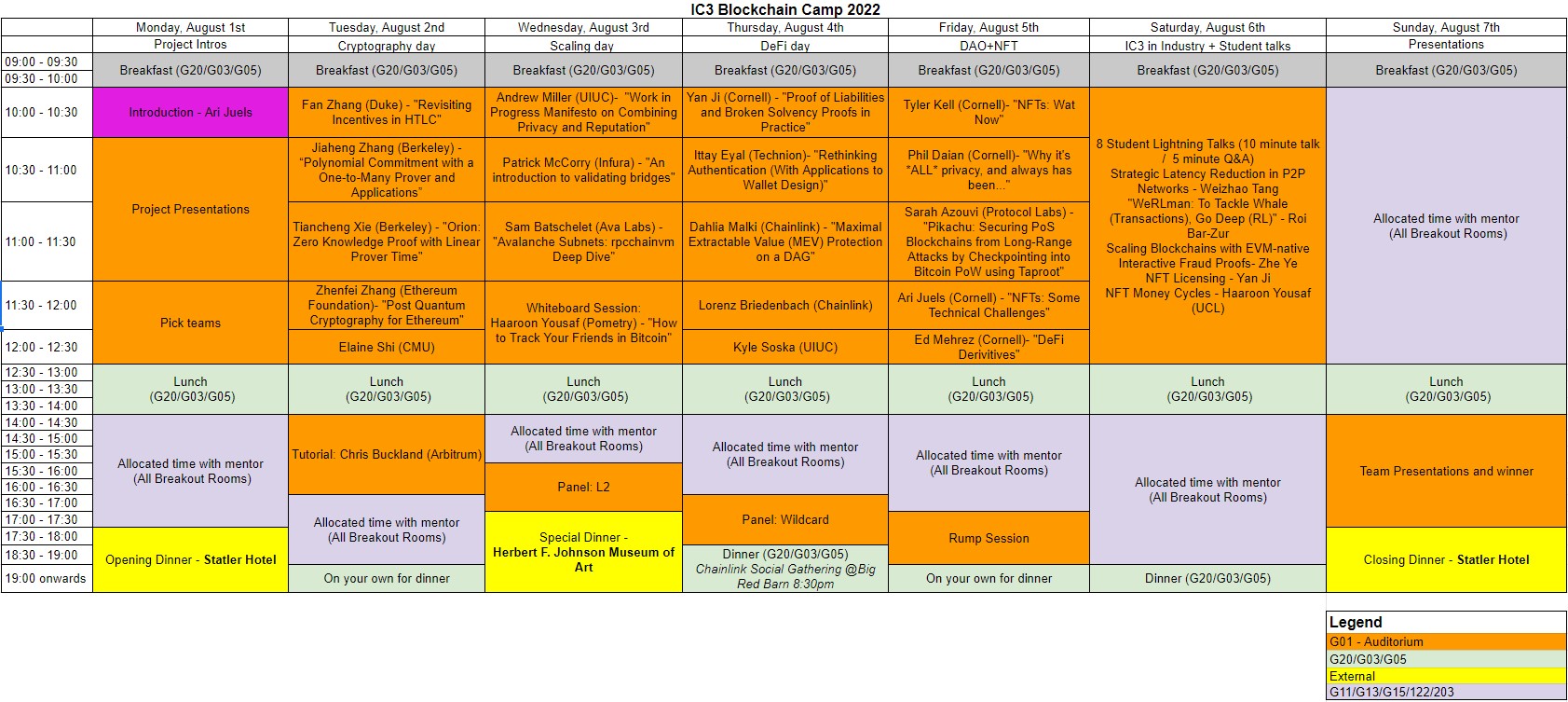
Content included talks, tutorials, and panels hosted by blockchain leaders, academia, industry, and the open source community.

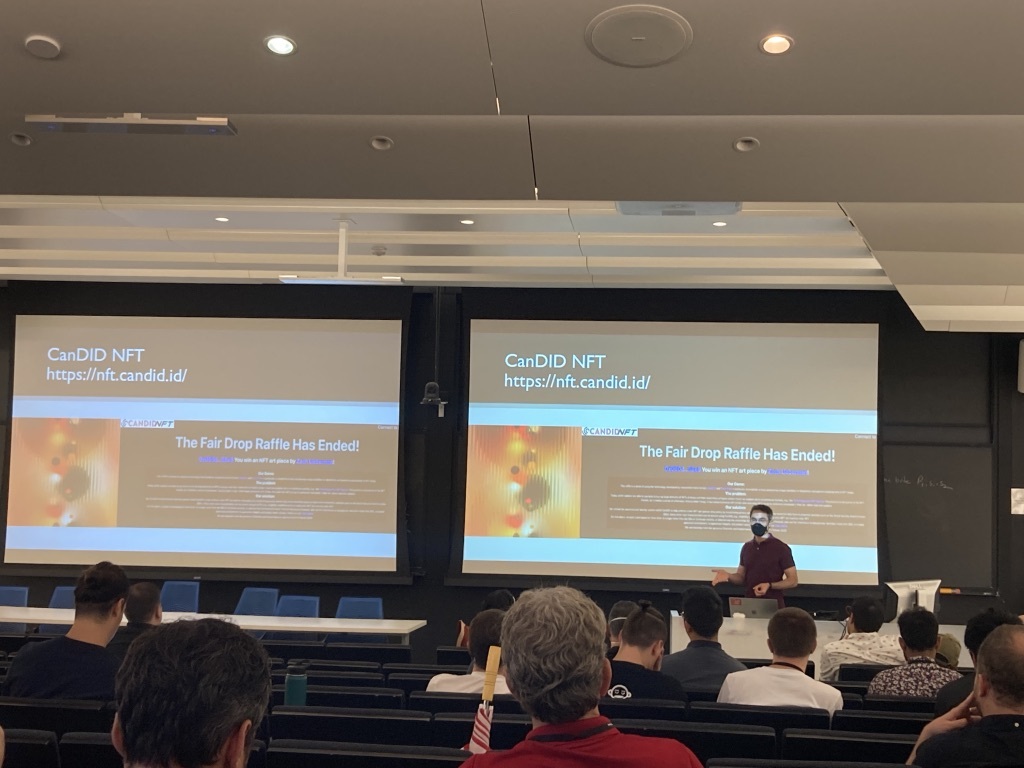
The camp also featured social events including a rump session, games session, opening and closing dinners at the Statler Hotel, and a reception at the Herbert F. Johnson Museum of Art. IC3 Partner, Chainlink hosted a party for camp attendees at the Big Red Barn on the Cornell campus.
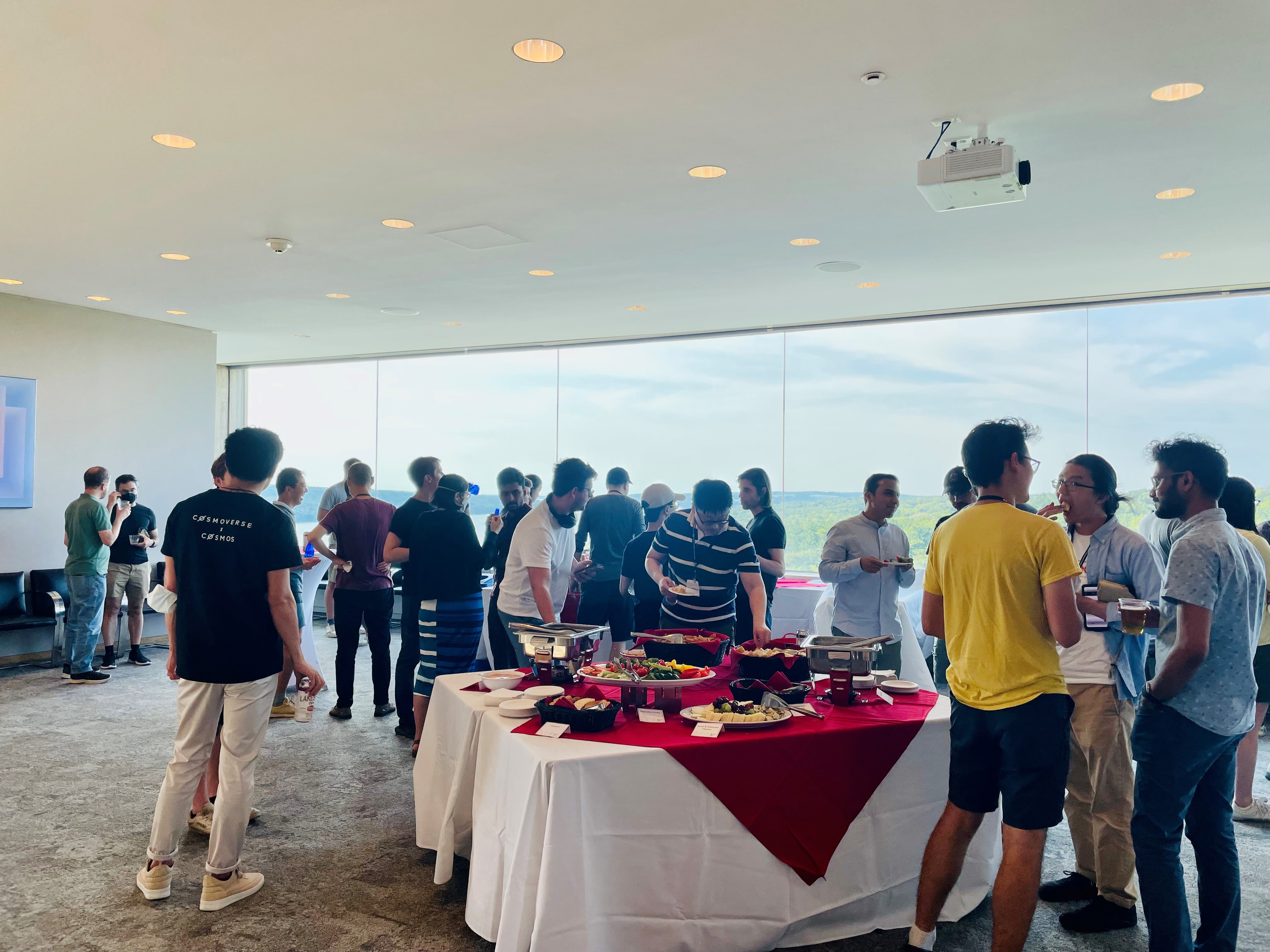
Project teams self-selected projects on Sunday after considering the project proposals. The teams coded throughout the week, and made project presentations and demos on Saturday. Six hackathon teams submitted projects this year. Projects were judged by Sarah Azouvi (Protocol Labs), Lorenz Breidenbach (Chainlink), and Soumya Basu (Cornell).
The Top 3 Projects:
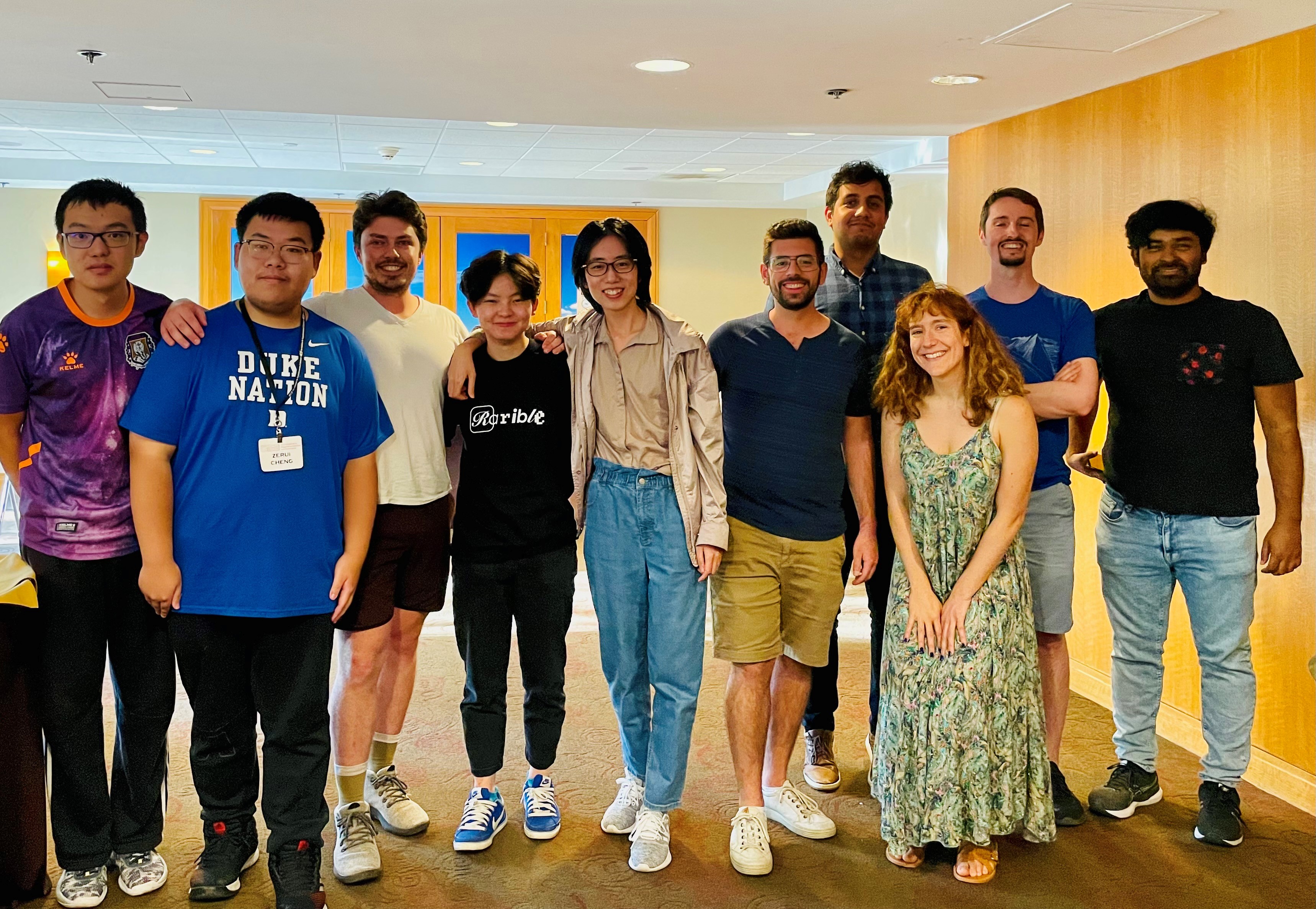
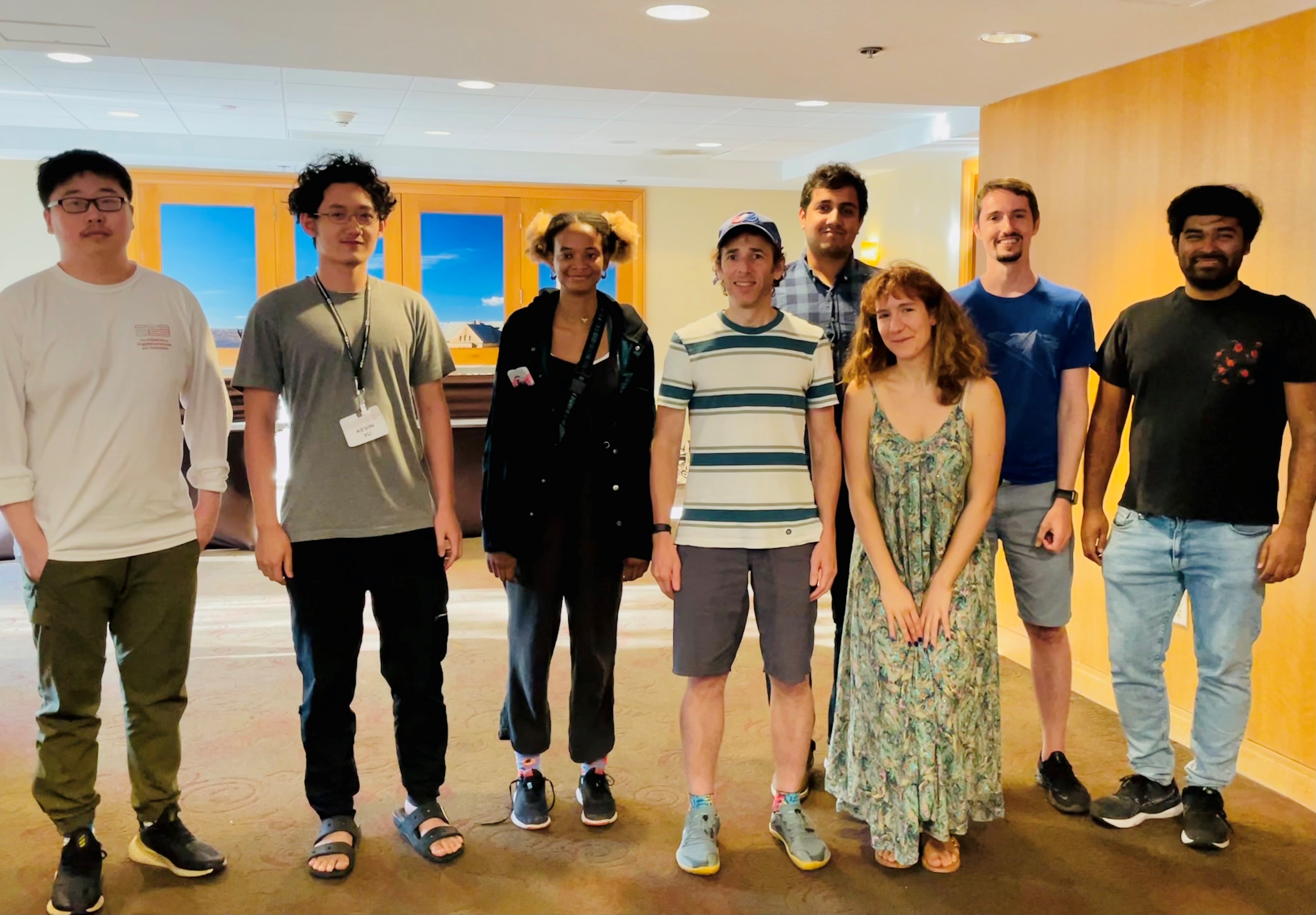

Additional Projects:
Atomic NFTs
Members: Phil Daian (project leader), Tyler Kell (project leader), Jessy Huang, James Austgen, Austin Liu, and Sarisht Wadhwa
Summary: Our project explored using a proof of complete knowledge to create an atomic NFT, and NFT that can only ever be held by an address whose owner has demonstrated having unencumbered access to its private key. The idea behind complete knowledge is that it demonstrates that the owner has control to do anything, and thus cannot be bribed or coerced into behaving a certain way, thwarting guaranteed voting bribery systems and preventing an NFT from being fractionalized inside a smart contract.
Resources: GitHub (Jessy) and GitHub (Sarisht).
Privacy-preserving additions to PBS and MEV-Boost
Members: Mikerah Quintyne-Collins (project leader), Surya Bakshi (project leader), Chris Buckland, Quintus Kilbourn, Xinyuan Sun, Leland Lee, and Parth Gargava
Summary: We studied solutions to privacy in the MEV-Boost architecture designed for PBS in the next iteration of Ethereum. Solving privacy was a challenging task, instead we explored a few classes of solutions. both cryptographic and incentive protocols as well, and outlined them in an etresear.ch post. We aim to continue this work going forward and mopre closely study the threshold encryption approach, proposed by some, as a solution.
Resources: website.
Addressing Capital Efficiency in Decentralized Spot Markets
Members: Songwei Chen (project leader), Wayne Chen (project leader), Michael Mirkin, Fan Zhang, Bineet Mishra, Weizhao Tang, Haoqian Zhang, and Marwa Mouallem
See you all next year!